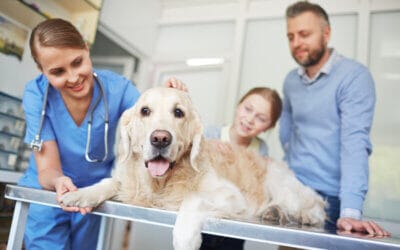Each year during Pet Poison Prevention Awareness Month in March, the ASPCA Animal Poison Control Center releases a list of the top toxins ingested by pets. This makes it the perfect time to take a look around your home and think about what might be harmful to your pet.
Depending on the amount they ingest, all of the items on this list can cause health problems ranging from gastrointestinal distress, vomiting, and lethargy to organ failure and even death. Read on to find out what could harm your pets and how to keep them safe.
Human medications
Over-the-counter and human prescription medications topped the 2020 list. These medications — ranging from vitamins and herbal supplements to antidepressants and heart medicines — accounted for over 36% of the calls received by the ASPCA Animal Poison Control Center in 2019.
Food items
Food can also be toxic to pets. Common food items that are poisonous for both cats and dogs include chocolate, grapes, raisins, onions, garlic, alcohol, and xylitol — an artificial sweetener found in toothpaste, chewing gum, candy, baked goods, and some types of peanut butter..
Veterinary products
These include your pet’s medications and over-the-counter supplements. While all of these products should be kept safely out of reach so pets don’t accidentally overdose or ingest another pet’s prescription, be particularly careful with chewables. Since they’re often flavored, they can seem like treats to your pet.
Household items
Cleaning supplies, paint, glue, and fireplace logs can expose your pet to toxins. Some plants — like lilies, tulips, and azaleas — and garden products like fertilizer can also be hazardous. Always keep these items out of paw’s reach.
Rodenticides and insecticides
Many products used to kill rodents and bugs are highly toxic and can be deadly to your pet. If you use these around your house, place them on a high shelf or another spot that’s inaccessible to your pet, or use a non-poisonous method of pest control.
Keeping your pet safe
Since most pet owners have one or more of the items on this list around the house, in the garage, or out in the yard, pet-proofing these areas to keep them out of reach will go a long way toward keeping your furry friend healthy, happy, and safe. This will help keep your dog or cat from joining the list of accidental poisoning cases reported each year.
However, if despite your best efforts your pet does ingest something potentially toxic, be sure to contact your veterinarian immediately or call the ASPCA’s Animal Poison Control Center at (888) 426-4435.



